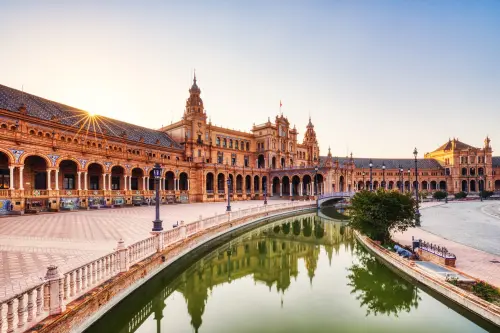Three seemingly unrelated events spanning the globe in the last week point inexorably to the same conclusion: we need far better rules of engagement between rich and poor, large and small, fast-growing and slow-growing countries if there is to be any hope of resolving the world’s problems and sustaining the current cycle of prosperity and wealth. Our international system is broken and outdated and needs to be transformed to deal with the complexity of today’s problems and the diversity of today’s main actors.
The talks on global climate change in Bali were a reminder that the rich world can no longer solve global problems without engaging developing countries. In Berlin, the rich countries agreed on a record new replenishment for the International Development Association, the largest global development agency, but also highlighted the enormous challenge of poverty and inequality that dominates the agenda for 85 percent of the world’s people. And in Washington D.C., a bipartisan Congressional Commission released a report reflecting two years of study on US foreign assistance. The conclusion of that study—entitled Beyond Assistance—is that US foreign assistance needs a major overhaul if it is to be effective.
The Bali conference on climate change has produced another round of wrangling between rich and poor countries. The rich countries argued that poor countries are too important to ignore—and indeed China will soon be the world’s single largest emitter of new greenhouse gases—while the poor countries argued that the rich should take responsibility for the current cycle of global warming after more than a century of accumulated emissions. They also worried that rich country assistance for mitigation efforts would substitute for other assistance for long term development needs. The lack of agreement on burden-sharing and mutual responsibilities is one reason why it took the personal intervention of the UN Secretary General to get even a watered down agreement on how to move forward.
Bali is just the latest in what has become an all-too-familiar refrain in meetings across the world. This year alone, the same debate on how much rich countries should do and how much poor countries should do has played itself out time and again. It has crippled the Doha round of trade talks, the European Union discussions with African countries on trade, the role of currency realignment as a mechanism to redress global imbalances, and the reform of international financial institutions like the International Monetary Fund and the World Bank. In brief, managing globalization well—which most would argue is critical for continued growth and prosperity—is being held hostage to the absence of productive engagement between rich and poor countries.
This might come as a surprise to many who think that the rich world has for long been generous in helping developing countries. In Berlin, the IDA replenishment showed a strong commitment to more aid. But that accomplishment must be set in context. The week before the Berlin agreement came an announcement from the Development Assistance Committee—the club of rich donor countries—that development assistance flows in 2006 had fallen in absolute terms for the first time in a decade—to 0.3 cents for every dollar of income.
Development assistance is one of the most concrete expressions of what the rich countries are prepared to do to help developing countries. At Monterrey in 2002, the rich countries agreed to increase their assistance to $130 billion each year and to double aid to Africa. A recent DAC report doubts that will happen. To quote from the document: “annual increases (in aid)…will have to be very substantial if there is to be a realistic prospect of meeting the 2010 targets..”
The biggest surprise in the IDA agreement was that the United States, the world’s largest economy and largest donor to developing countries, fell to second place behind the United Kingdom in the dollar value of its pledge. This is the first time in IDA’s existence that the United States has not been the largest donor. And it cannot be explained by suggesting that the US has found better ways of getting its money to help the world’s poorest. A review of US development assistance by a bipartisan commission authorized by Congress was released in Washington D.C. last week. The HELP commission report is blunt: “Our foreign assistance system is broken. We ignore this reality at our peril.” A list of sensible recommendations follows. In brief, the HELP commission underscores the importance of a robust foreign assistance program, recognizes that the US program is among the least generous in the developed world in relative terms (the US ranks 21 out of 22 DAC countries, just above Greece), and suggests how the system can be reshaped.
Taken individually, the news from Bali, Berlin and Washington D.C. is disappointing. Taken together, it is alarming. The links between these events seem evident, yet there is no formal linkage. The mechanisms for engagement between rich and poor countries seem outmoded and ineffective. International commitments do not seem to be commensurate with the size of the problems the world faces and there is little credibility that the spirit of the agreements, once made, will be honored. In part that is because confidence in effective development assistance has eroded. Upgrading the quality and quantity of aid is more urgent than ever if the major problems facing our world are to be tackled with the seriousness required.
The Brookings Institution is committed to quality, independence, and impact.
We are supported by a diverse array of funders. In line with our values and policies, each Brookings publication represents the sole views of its author(s).



Commentary
Op-edNew Rules for a New World: The Necessity of Reforming Global Governance
December 20, 2007